The landscape of cannabis in Central Europe is as diverse and dynamic as the region itself. Rich in history and culture, Central Europe, a region predominantly comprising the countries of Germany, Austria, Hungary, Poland, Czech Republic, Slovakia, and Slovenia, is currently undergoing a significant shift in its perspective towards this age-old plant. Each of these countries carries its unique narrative when it comes to cannabis, a tale shaped by a multitude of factors such as societal norms, legislative frameworks, medical advancements, and cultural acceptance.
The influence of cannabis can be traced back to various historical instances in this region, but its role in modern society is undergoing a distinct transformation. With a growing body of research highlighting the potential therapeutic benefits of cannabis and its derivatives, like cannabidiol (CBD), attitudes are gradually changing. Aided by global trends, the discourse surrounding cannabis is shifting from a largely stigmatized perception towards a more informed, nuanced understanding of its potential.
The journey of cannabis in this region is not a monolithic one. Instead, it is marked by differing trajectories, reflective of the unique socio-political makeup of each country. Be it the bustling streets of Berlin, the picturesque landscape of Prague, or the historical richness of Budapest, the echoes of cannabis can be heard across various facets of life in these countries.
Medical usage, in particular, has surfaced as a major driving force in this narrative. A testament to the strides made in the field of medical research, cannabis is being viewed as a viable option for the treatment of several severe health conditions. The wave of medical cannabis legalization has been sweeping across several countries in this region, a significant shift that underscores the changing paradigms of health and wellness.
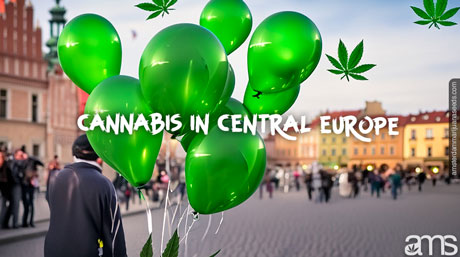
Similarly, the legal status of cannabis, although diverse across the region, is in many places evolving. The politics of cannabis, entwined with the complex tapestry of legislative, cultural, and societal factors, continues to shape its journey in Central Europe.
As we navigate through the tale of cannabis in Central Europe, it’s important to remember that each country has its own unique story, its own, challenges and victories, and its own, relationship with this versatile plant. What remains constant, however, is the unfolding nature of this narrative, marking a time of change, understanding, and potential for cannabis in Central Europe.
Germany’s groundbreaking journey in the realm of medical cannabis is worthy of attention. Ever since the Federal Parliament (Bundestag) passed legislation in 2017 permitting the use of medical cannabis, there has been a noticeable paradigm shift in the country’s healthcare sector. This law has opened up new horizons for patients suffering from severe health conditions, such as chronic pain, multiple sclerosis, and certain forms of epilepsy, offering them an alternative and potentially effective treatment option.
Berlin, the pulsating heart of Germany, has been at the forefront of this change, mirroring the country’s progressive stance. As the epicenter of the country’s burgeoning medical cannabis industry, Berlin has seen the rise of specialized cannabis clinics and pharmacies. These institutions offer dedicated services for patients seeking medical cannabis treatment, from issuing prescriptions to providing patient counseling. It’s not uncommon to see people from different walks of life, all brought together by their shared need for medical cannabis, thronging these clinics.
The transformation is not limited to the urban milieu alone. The embrace of medical cannabis is echoed across the country, from bustling cities like Hamburg and Munich to smaller towns. This widespread acceptance is reflected in the significant number of medical cannabis prescriptions filled annually. The German Health Insurance Association reported over 240,000 prescriptions filled in 2020, indicating the growing reliance on this alternative form of treatment.
However, such a shift would not have been possible without a thorough understanding of cannabis and its potential benefits. German researchers have been instrumental in advancing our knowledge about cannabis, delving into the scientific intricacies of the plant, its constituents, and their interaction with the human body. Notably, Germany is home to some leading institutions conducting extensive research on cannabinoids and their potential therapeutic use.

Moreover, an essential part of Germany’s success in pioneering medical cannabis has been the training and education of healthcare professionals. Specialized programs have been implemented to educate doctors about the potential uses and benefits of medical cannabis, preparing them to effectively prescribe and manage cannabis-based treatments.
This holistic approach, comprising legislation, healthcare, research, and education, has allowed Germany to pioneer the medical cannabis landscape in Central Europe. It’s a testament to the country’s commitment to evolving healthcare practices and embracing new, promising avenues for the welfare of its citizens. The journey is ongoing, and there is much anticipation about the future of medical cannabis in Germany.
The Czech Republic, nestled in the heart of Central Europe, has charted its own, unique path in the realm of cannabis. Known for its liberal drug laws, the country has cultivated an environment that allows for a more open and nuanced dialogue about cannabis and its applications. The legalization of medical cannabis in 2013 marked a pivotal point in the country’s cannabis journey, offering a beacon of hope for patients with severe health conditions.
Prague, the magical capital city, with its fusion of rich history and vibrant culture, reflects the country’s progressive stance. In recent years, the city has become a hub for cannabis-related tourism, attracting visitors from around the globe. This has led to a burgeoning sector catering to this demand. From local coffee shops offering cannabis-infused products to dispensaries providing a wide range of strains and derivatives, local businesses have embraced the plant and the interest it garners.
But it’s not just businesses that have tapped into the cannabis trend. The rise of cannabis-related tourism has led to unique cultural experiences such as cannabis-themed tours and festivals. These events offer a deep dive into the world of cannabis, educating participants about its history, cultivation, and applications, and reflecting the country’s liberal approach towards cannabis.
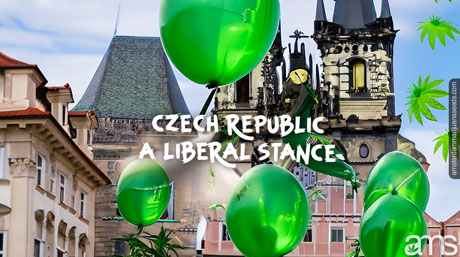
On the medical front, the Czech Republic’s commitment to embracing and understanding cannabis is reflected in the government’s investment in research. The Czech Medical Cannabis Association, for instance, conducts studies focusing on the therapeutic benefits of cannabinoids. These research efforts not only underscore the commitment to advancing medical cannabis knowledge but also aid in refining regulations and enhancing patient access to cannabis treatments.
Moreover, steps have been taken to cultivate a domestic medical cannabis industry. The Czech Republic has established its own, cannabis cultivation facilities, ensuring a steady supply for medical use. This strategic move underscores the government’s intent to become self-reliant in cannabis production, indicating a long-term vision for cannabis in the country.
The Czech Republic’s journey demonstrates a well-rounded approach to cannabis, balancing medical needs, societal acceptance, and economic opportunities. It embodies the country’s progressive stance, setting a precedent for liberal cannabis policies in Central Europe. As the story continues to unfold, the Czech Republic’s role in shaping the cannabis narrative remains vital and influential.
The journey of cannabis in Poland and Slovakia highlights a fascinating juxtaposition of caution and change, painting a complex picture of cannabis acceptance in Central Europe.
Poland, known for its rich history and resilience, has shown a measured approach towards medical cannabis. The legalization of medical marijuana in 2017 marked a crucial turning point. Still, it came with stringent regulations that mirror the country’s careful approach. Unlike its more liberal neighbors, Poland allows only imported cannabis, demonstrating careful control over the source of medical cannabis.
The prescriptions are limited to a few severe conditions such as chronic pain, chemotherapy-induced nausea, and multiple sclerosis, emphasizing the use of cannabis as a last resort treatment option when conventional therapies prove insufficient. Further adding to the tightly controlled environment, the task of prescribing cannabis falls on specialist physicians who have the necessary training and expertise to handle such complex treatments. Cities like Warsaw, Krakow, and Wroclaw house these specialists, thereby becoming important centers for medical cannabis in the country.
Slovakia, on the other hand, has maintained a conservative stance with cannabis still classified as an illegal drug. This classification stems from a longstanding perspective of viewing cannabis through the lens of potential misuse rather than its therapeutic potential. However, the winds of change are beginning to stir in cities like Bratislava, Košice, and Prešov. The public debate regarding decriminalization and medical usage of cannabis has been gathering momentum in recent years, pointing towards a potential shift in the country’s stance.
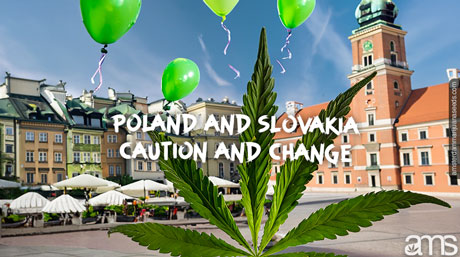
A vital role in this shift is played by advocacy groups. These organizations have been striving tirelessly to raise awareness about the potential benefits of medical cannabis, fostering dialogue, and encouraging legislative change. Their efforts have sparked a growing conversation around cannabis, leading to increased public support for more liberal cannabis regulations.
In both Poland and Slovakia, the story of cannabis is far from over. The cautious approach taken by these countries is a testament to the complexity of integrating cannabis into society, particularly in a medical context. It underlines the importance of robust regulatory frameworks, public awareness, and ongoing dialogue in driving change. While the pace may be slower than some of their neighbors, the conversation around cannabis in these countries is undeniably progressing, painting an intriguing picture of caution, change, and hope.
The story of cannabis in Austria and Hungary underlines the growing influence of advocacy and societal acceptance in shaping cannabis policies.
In the elegant city of Vienna, Austria, there is an undercurrent of change led by a vibrant community of advocates working tirelessly for greater recognition and acceptance of medical marijuana and CBD. While the country hasn’t fully legalized cannabis, Austria’s stance is notably progressive compared to some of its neighbors. The Austrian Narcotics Act excludes CBD from the definition of cannabis, thus allowing its use and promoting a burgeoning CBD market. This stance reflects a growing acknowledgment of the potential therapeutic benefits of cannabinoids, even in the absence of full cannabis legalization.
Similarly, Budapest, the historic and vibrant capital of Hungary, also echoes this change. Here too, a dynamic community of advocates is challenging traditional norms and pushing for change. Though the country maintains a conservative stance on cannabis, there is some leniency towards CBD, which is legal and widely used. Hungary’s legal framework decriminalizes the use of cannabis for personal use to some extent, demonstrating a shift in attitudes towards the plant.
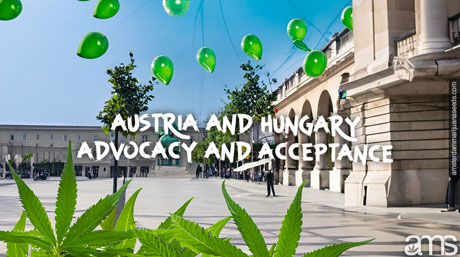
In both Austria and Hungary, the vibrant black market for cannabis underscores a high demand that is not yet fully addressed by the legal framework. Advocates argue that this scenario represents a lost opportunity for better regulation and taxation, which could contribute to public health and safety, and provide economic benefits. They highlight the need for reforms that could help transform the black market into a regulated, legal market, ensuring quality control, protecting consumers, and potentially creating new economic opportunities.
The role of advocacy groups and civil society in fostering dialogue, raising awareness, and pushing for legislative reforms is significant in both countries. By educating the public and policymakers about the potential benefits of cannabis and CBD, these advocates are slowly but steadily influencing societal and political attitudes.
In the end, the journey of cannabis in Austria and Hungary is a testament to the power of advocacy and societal acceptance. It highlights how these two elements, when combined with informed policymaking, can help shift perspectives and lead towards a more balanced and beneficial approach to cannabis. As this journey continues to unfold, the world watches closely, offering valuable insights into the evolving cannabis narrative in Central Europe.
In the heart of Central Europe, Slovenia has emerged as a keen adopter of CBD, the non-psychoactive component of cannabis famed for its potential therapeutic benefits. As countries grapple with the complexities of cannabis legislation, CBD has become a key player in the wellness industry, marking its territory in an array of products and capturing the attention of consumers and health enthusiasts alike.
CBD, or cannabidiol, has made a considerable impact on the global wellness landscape. From potentially alleviating anxiety to managing chronic pain and even reducing the severity of certain seizure disorders, CBD’s potential therapeutic applications have sparked significant interest. It is this potential that has permeated the boundaries of many nations, making its way into the lives of people across Central Europe, from bustling Munich in Germany to charming Ljubljana in Slovenia.
Slovenia, in particular, exemplifies the intriguing relationship that nations are forming with CBD, even amidst stringent cannabis laws. Marijuana remains largely illegal in the country, reflecting a conservative stance on cannabis. However, CBD tells a different story. It’s not only legally available but also rapidly gaining popularity. This divergence is partly due to CBD’s non-intoxicating nature, allowing it to skirt the controversies often associated with cannabis, and partly because of its potential health benefits, which are garnering increasing recognition.
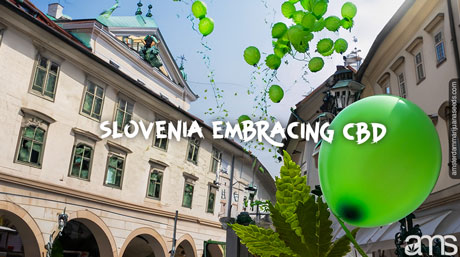
Ljubljana, the capital of Slovenia, encapsulates this growing fascination with CBD. The city, known for its stunning architecture and vibrant cultural scene, now boasts an expanding CBD landscape. From specialized CBD cafes serving an array of CBD-infused beverages to retail stores stocking a wide range of CBD products, the city is capitalizing on the CBD trend. Ljubljana’s residents are progressively exploring the potential health benefits of CBD, reflecting a growing acceptance of this cannabis derivative.
However, the rise of CBD in Slovenia is not confined to Ljubljana alone. Across the country, from Maribor to Koper, Slovenians are increasingly embracing CBD. It’s finding its way into a variety of everyday products, from skincare and wellness to food and beverages. This wide adoption of CBD indicates a societal shift in perception towards cannabis derivatives, reflecting a broader trend seen across Central Europe.
Moreover, Slovenian entrepreneurs and businesses have tapped into the growing CBD market, establishing home-grown brands that cater to local and international consumers. By fostering a thriving CBD industry, Slovenia is not only meeting the rising demand but also contributing to the country’s economy and positioning itself as a key player in the global CBD market.
In the larger context, Slovenia’s journey with CBD offers valuable insights into the evolving landscape of cannabis and its derivatives in Central Europe. It reflects a nuanced approach where nations while maintaining caution with cannabis, are still finding ways to harness the potential benefits of its components, particularly CBD. As this narrative continues to develop, Slovenia’s story serves as an intriguing chapter in the ongoing saga of cannabis in Central Europe.
As Central Europe explores the evolving domain of cannabis, the political landscape has become a key influencer in shaping the path forward. There is undeniably a palpable momentum toward relaxing regulations surrounding cannabis usage, particularly for medical purposes. This shift mirrors a global trend, reflecting a growing recognition of the potential therapeutic benefits of cannabis.
However, the pace of this progress across Central Europe is far from uniform. Each country carries its own unique societal, cultural, and political contexts, which inevitably influence its approach to cannabis legislation. From Germany’s pioneering role in medical cannabis to Slovenia’s enthusiastic embrace of CBD, the diversity of the region is clearly, mirrored in its cannabis laws.
Lawmakers are finding themselves navigating complex waters. They are tasked with the challenging endeavor of striking a balance between permitting medical usage of cannabis, preventing potential misuse, and managing the wider societal implications. This balancing act necessitates a careful and considered approach. On the one hand, the potential therapeutic benefits of cannabis for conditions like chronic pain, epilepsy, and anxiety disorders provide compelling arguments for its medical use.
On the other hand, concerns regarding potential misuse and the societal impact of legalization underscore the need for robust regulations. The challenge lies in implementing a framework that can ensure patient access to potentially life-improving treatments, while also implementing safeguards to prevent recreational misuse and related societal harms.

This multifaceted discourse around cannabis regulation reveals the complexities of integrating a historically stigmatized substance into medical practice and society at large. As each country in Central Europe continues to grapple with these issues, their collective experiences contribute to a richer understanding of the potential paths forward for cannabis policy. As such, the political scene in Central Europe offers valuable insights into the evolving global conversation around cannabis.
In conclusion, the narrative of cannabis in Central Europe is not merely a story but an unfolding saga that continues to captivate observers globally. The narrative is as dynamic as it is multi-faceted, reflecting the complex interplay of medical, political, and cultural factors that shape cannabis policies and practices.
The rise in medical usage signifies an important shift, reflecting a growing recognition of the potential therapeutic benefits of cannabis. Coupled with this is the evolving political and cultural landscape, which continues to challenge traditional perspectives and embrace newer paradigms. Each nation, in its unique way, contributes to the intricate tapestry of Central Europe’s relationship with cannabis.
But perhaps the most fascinating aspect is that this story is far from complete. There are many chapters yet to be written, and many developments yet to unfold, making the future of cannabis in Central Europe a source of great anticipation. Whether it’s the potential full legalization of cannabis, further scientific breakthroughs, or changing societal attitudes, Central Europe’s cannabis narrative promises to continue shaping and enriching the global story of cannabis. It’s a testament to the region’s capacity for change and innovation, marking Central Europe as a crucial player in the journey of cannabis acceptance and utilization.
The legal status of cannabis in Central Europe varies across the region. While some countries, like Germany and the Czech Republic, have embraced medical cannabis and enacted legislation allowing its use, others, such as Poland and Slovakia, have more cautious approaches with limited medical usage. Austria and Hungary have adopted more lenient policies regarding CBD, a non-psychoactive component of cannabis. Slovenia has shown a particular interest in CBD, with its legal availability and growing acceptance. In Germany, medical cannabis has gained recognition as a potential treatment option for severe health conditions. Patients suffering from chronic pain, multiple sclerosis, epilepsy, and other ailments have found relief through medical cannabis. The legalization of medical cannabis in 2017 has opened new horizons for patients, offering them alternative and potentially effective treatments. Germany's progressive stance has led to the establishment of specialized cannabis clinics and pharmacies, providing dedicated services for patients seeking medical cannabis treatment. The Czech Republic has adopted a liberal stance towards medical cannabis. The country legalized medical cannabis in 2013, allowing patients with severe health conditions to access this form of treatment. Prague, the capital city, has become a hub for cannabis-related tourism, and local businesses have embraced the plant, offering cannabis-infused products and organizing cannabis-themed tours and festivals. The Czech Medical Cannabis Association conducts research to explore the therapeutic benefits of cannabinoids, contributing to the advancement of medical cannabis knowledge and patient access to treatments. What is the current legal status of cannabis in Central Europe?
What are the medical benefits of cannabis in Germany?
How does the Czech Republic approach medical cannabis?






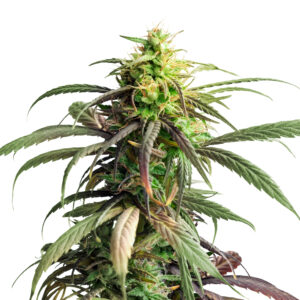






Related Posts

Budapest’s Sports Loving Duo
Atilla and Zsofia’s love story is woven into the cultural fabric of their hometown, Budapest. Their lives are active and full, filled with a balance of work, play, and their little secret horticultural project. Atilla, with his broad shoulders and strong hands, is well known in the local gym and the volleyball court. He’s a plumber…
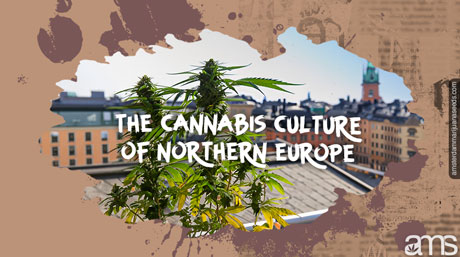
In the realm of medical research and politics, the cold, scenic landscapes of Northern Europe are heating up with debates around the growing trend of medical marijuana usage. From the cultivation of the cannabis plant to the use of CBD in health and wellness, this region is demonstrating a shift in societal and political perceptions that are impacting local cultures and beyond.

The story of cannabis, an ancient plant steeped in millennia of cultural and medicinal history, is currently experiencing a radical transformation. For much of recent history, it’s been maligned, dismissed, or outright criminalized, often cast into the shadows of public consciousness. However, in Southern Europe, a resurgence of interest is underway. Like a phoenix rising from the ashes, cannabis is…